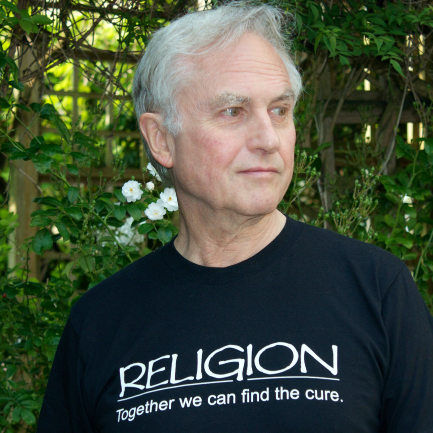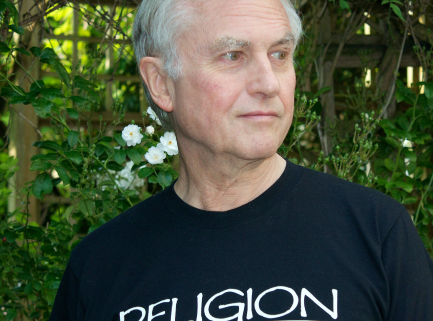Richard Dawkins Tweets a Question
 Richard Dawkins tweeted the following today. “My son’s a good Muslim … so I don’t understand what he’s doing there [trying to join ISIS].” Is it precisely BECAUSE he’s a good Muslim?
Richard Dawkins tweeted the following today. “My son’s a good Muslim … so I don’t understand what he’s doing there [trying to join ISIS].” Is it precisely BECAUSE he’s a good Muslim?
There was an immediate response of people calling Richard names and being aghast at the question. Most didn’t take it as a question, but as a personal attack on all Muslims.
Why do people join terrorist organizations, religious cults, gangs? There are a variety of psychological reasons. One of the answers has to do with the use of doctrine.
I will use myself as an example. I grew up in a home in which my parents taught us that we were Christians. That was a normal thing to be taught in the little town I was raised in, in the “heartland” of America. Most everyone I knew considered themselves Christian. I was not a religious scholar, I was a 17 year old kid trying to understand where I fit in the world. I was idealistic and wanted to find a way to express myself, to make a difference, to feel like I belonged. I met the “Moonies”.
The doctrine I was presented with, from this group of people I met on a “peace walk” I attended, taught a new interpretation of the Bible. When I joined I was, in my mind, making a decision to be as good of a Christian as was possible. I was following the 2nd coming of the messiah.
So, yes, Richard, it’s a good question. I would venture to say that anyone who goes off to join ISIS considers themselves to be a very good Muslim. They are doing it precisely because they want to be the best Muslim they can be.
Arguing doctrine is something I will not do. Many people find it a valuable exercise. I’m sure they are more scholarly than me in that area, so I will leave it to them.
I am looking at doctrine through a different lens. The lens I am interested in looking through has to do with how religious doctrine is used as a tool of control.
Recruiters of ISIS are specifically looking for young people who consider themselves to be good Muslims, but who do not feel they have a good outlet for their passion, their anger, about how they feel Muslims are being treated in the world. They are going to Syria to fight a holy war for the sake of all Muslims. They are willing to give their lives for an organization that uses religious doctrine as a tool of recruitment and control. Young people are joining ISIS precisely because they want, more than anything, to be good Muslims.
People get defensive when their version of a doctrine is being compared to another version of a doctrine, that has the same title but a different interpretation, especially when they disagree with something as much as many Muslims disagree with what ISIS is doing.
I understand the angry response to Dawkins question. I understand why peace loving people who consider themselves Muslim would not want to think that anyone going off to join ISIS would be doing it because they want to be a good Muslim.
It is important to understand how powerful of a tool religious doctrine can be, how easily a vulnerable mind can be manipulated by a group like ISIS. It is important to understand what is going through the mind and heart of a young person who goes off to join ISIS.
When you consider doctrine, any doctrine, as a potentially highly powerful psychological tool, then the question Richard Dawkins asks is a very important one to grapple with.
I would ask a slightly different question; “Is is BECAUSE they were mentally manipulated by a doctrine that is specifically packaged and marketed to take advantage of their desire to be a good Muslim?”




excellent points altogether, you simply won a brand new reader.
What could you suggest about your post that you simply
made a few days in the past? Any sure?